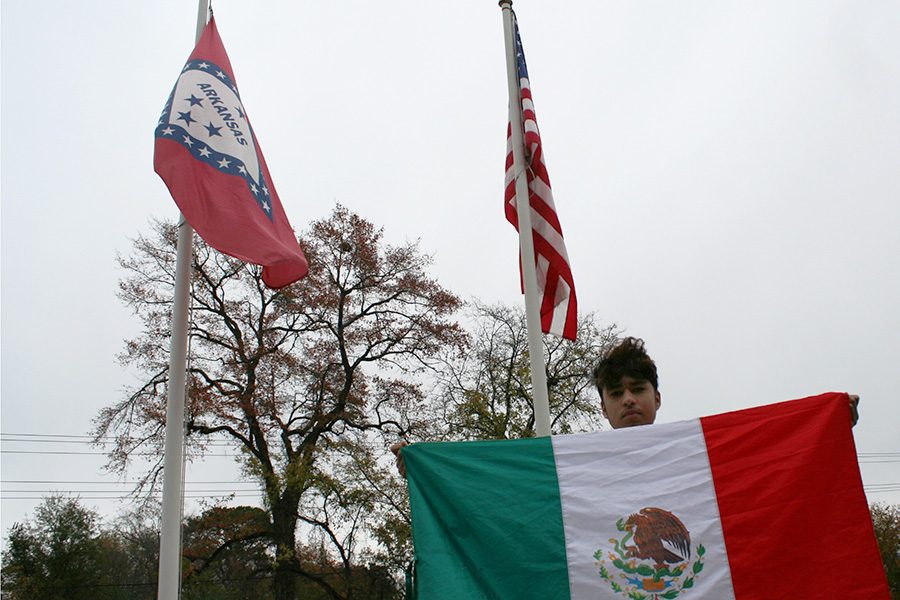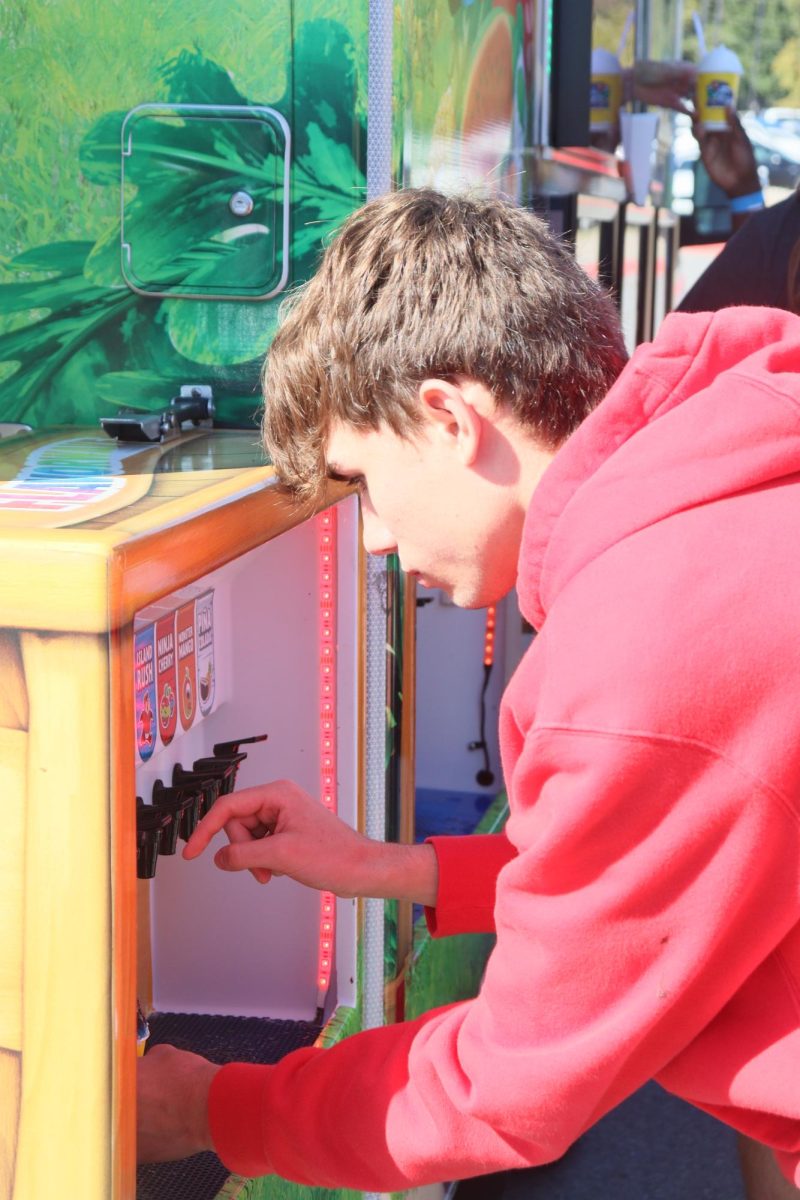Home of the Brave
Students cross U.S./Mexico border seeking better life
March 8, 2019
*All names have been changed to protect students.
From fleeing violence, escaping poverty or simply looking for better opportunities, immigrants cross the Mexican border and enter the United States every day. In the media coverage and debate regarding immigration, stories and experiences of the immigrants themselves are often left unheard.
In 2016, Donald Trump won the Presidential election with his biggest promise being to build a wall funded by Mexico at the U.S.-Mexico border in order to end illegal immigration. Trump’s promise has since been left unfulfilled. Trump’s phone call with former Mexican President Enrique Pena Nieto ended in Mexico rejecting Trump’s plan, refusing to pay for the wall.
Two and a half years into his first term as president, Trump shut down the government in a failed attempt to secure funding for the wall.
According to Immigration and Customs Enforcement officials, 256,085 immigrants were deported in 2018. This was a 13 percent increase from the 2017 fiscal year. New York Times author Ron Nixon noted that a, “new policy, which Mr. Trump signed in early 2017, is not selective about which illegal immigrants should be arrested or deported first. Critics said the stepped up enforcement has led to the arrest of undocumented immigrants for minor violations, or who pose no security threat.”
Deportation is a risk that many immigrants are willing to take in order to make a life for themselves and their families in America. Immigrants often spend tens of thousands of dollars to get to America, only to get caught while making their journey.
Junior Maria Ramirez and her family made their way to America illegally, spending copious amounts of money only to face the repercussions of being caught and having to pay more.
“My dad had to pay 25,000 dollars to get [my family to America],” Ramirez said. “It costs thousands of dollars to get someone [to America], and the money is immediate. My family spent a lot of money, and since we were caught twice, it was even more.”
Immigrants often go through intense labor in order to raise money to find a way to America. Many jobs require waking up early in the morning and not getting done until late at night. Some children will not go to school so they can work for their families.
Sophomore Carlos Sanchez experienced physically demanding work before getting to come to America.
“I had to work for 12 days in order to get [to America],” Sanchez said. “I had calluses, and my hands got so bad that I wasn’t able to work anymore.”
Along with having to leave everything behind, many immigrants’ journeys to America involve a lot of uncertainty. From putting their lives at risk to genuine fears of being caught, immigrants’ plans to cross the border rarely go according to plan.
“In what was supposed to be a week, it took me 14 days to get to America,” Sanchez said. “While me and a friend were crossing the border, we ended up getting lost and spent about eight days that way.”
Despite hardships that come with immigrating to a new country, students who are immigrants also face the difficulties of culture and language barriers. Many immigrants come to America knowing little to no English. This is especially difficult in schools, where, in addition to having difficulties comprehending the subjects they are learning, they also face harassment due to their trouble speaking clear English.
Junior Valerie Lopez feels empathetic for students struggling with their classwork and making friends, since she has been in their shoes.
“I hate to see [students who are immigrants] struggle with school and get harassed because they don’t understand the language,” Lopez said. “I went through that when I first got here, and it’s really difficult.”
Children who have immigrated with their families also often experience intense pressure from their parents. Their parents want to see them succeed in America, so they are pressured to learn English quickly, as well as work hard and make good grades in school.
“When I first got here, my mom was really strict about me learning English,” Lopez said. “I learned English in one year. I went to school in Conway, and there weren’t that many people that could speak Spanish, so I had to learn English by myself. My mom expected me to learn [English] one day to another, and it was a lot of pressure.”
Immigrating families often spend their life savings trying to create a new life in America. Once they arrive, they are immediately ostracized in the workforce. Some Americans believe that immigrants come to America because they didn’t want to work in the countries that they came from. This contradicts many immigrants’ views, as they see America as more of a job than just a place to live.
When sophomore Alejandro Santiago came to America, his father told him that America was not worth going to if he was not willing to work hard.
“When we got here, my dad told me that America is not a joke,” Santiago said. “I was told that you have to work hard here and actually put effort into what you do. [America] is here to help you out, not mess around.”
A widespread misconception about immigrants is that they continuously steal jobs from Americans. Brookings writer Vanda Felbab-Brown explained in one of her pieces involving immigration that “the impact of immigrant labor on the wages of native-born workers is low… However, undocumented workers often work the unpleasant, back-breaking jobs that native-born workers are not willing to do.”
Most of the jobs which immigrants are “taking” are highly physically demanding and are unwanted by Americans. Many immigrants feel that they are more deserving of these jobs because they are more willing to work for them.
Junior Lucia Hernandez feels strongly about immigrants not getting enough credit when it comes to work.
“I think it’s ridiculous how Americans have an advantage over me, but when I get something that they didn’t, they think it is because I stole it from them,” Hernandez said. “Nothing is given to me, and I work hard for what I have, so I deserve to have it.”
Students who are immigrants feel that their achievements and hard work is often disregarded due to where they come from.
“I sit in class with a bunch of white people that have the same and even more opportunities that I do,” Hernandez said. Even if I do well in school, even if I get a good ACT score, I can’t get full rides. I can’t get full scholarships [because of my citizenship status]. “I am at such a disadvantage. They don’t look at my hard work.”








